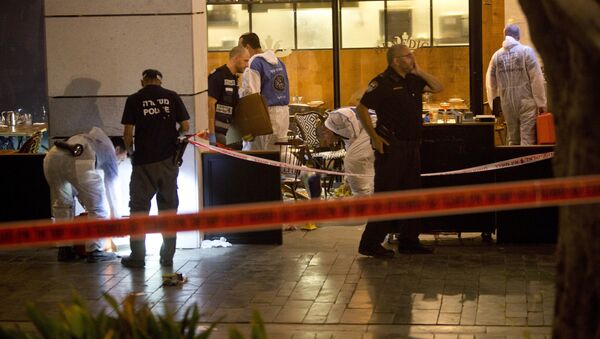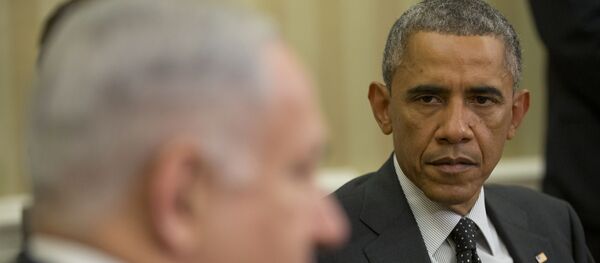According to French Foreign Minister Jean-Marc Ayrault, Israel's heavy-handed reaction to a terrorist attack at a popular café in Tel Aviv will likely increase violence, rather than calm tensions.
Following the deadly attack on a café located at Sarona Market in Tel Aviv, Israel has frozen 83,000 Palestinian entry permits during the holy month of Ramadan, starting July 6, coinciding with the Jewish holiday of Shavuot on July 12, "due to security concerns." Palestinians have been prohibited to take part in prayers in the Al-Aqsa Mosque at Temple Mount in Jerusalem. The Israeli military has deployed hundreds of troops, effectively sealing off the West Bank.
Reiterating France's condemnation of the Sarona market attack, Ayrault noted that, "The decision by the Israeli authorities today to revoke tens of thousands of entry permits could stoke tensions which could lead to a risk of escalation."
France currently holds the presidency of the UN Security Council, and Ayrault spoke at the UN headquarters, presiding over an open council debate on the protection of civilians in peacekeeping operations.
Last Friday, France hosted an international meeting in Paris attended by more than two dozen Western and Arab countries. The meeting was dedicated to an attempt to come up with a new strategy for peace in Middle East and restart Israeli-Palestinian negotiations, dormant for almost two years. The participants welcomed the "prospect" of a conference with both parties later this year.
In the wake of the attack, Tel Aviv Mayor Ron Huldai reportedly stated that "no one has the courage" to find peace with the Palestinians, and called for attempts to strike an agreement.
"You can't hold people in a situation of occupation and hope they'll reach the conclusion everything is alright," he said.
His statement later was dismissed by hardliner Israeli officials as "bizarre" and "delusional."




